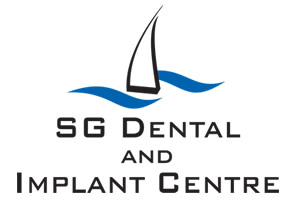Dental Implants – A Boon For The Elderly
This popular tooth replacement method is ideal for older patients who have lost natural teeth.
Some of us might associate cosmetic dentistry with the young and potentially beautiful, but it can be beneficial for all ages. Some cosmetic treatments are just that; they improve the way that you look. Others also have practical implications as well. Dental veneers for example, can be used to help someone have a perfect white smile but they can also be used to help tackle tooth sensitivity.
One of the best known cosmetic treatments that ‘doubles’ as a practical one is dental implant placement. At Mike Allen’s Dental Practice, we have had many older patients who have had this procedure and have been delighted with the many benefits that they bring. In today’s blog, we take a look at how some of our senior Burton patients could benefit from implants and some of the practicalities involved in having them placed in our later years.
Tooth loss
As we get older, the likelihood of tooth loss becomes more real. Whether by accident or problems that evolve over time, tooth loss is a reality for many older people. Whether this is individual or multiple tooth loss, this can cause a problem and most people will look to replace them, often with dentures.
Dentures are greatly improved from the ones that your grandparents may have worn. They offer a greater degree of comfort and look more natural than their predecessors. Whilst some denture wearers are perfectly happy with them, others sometimes find them uncomfortable or unstable in their mouths. Because of this, more and more older people are looking into dental implants as an alternative.
Are dental implants suitable for older people?
In a nutshell, the answer to the above question is yes, with a few caveats. There is no reason why older people can’t have dental implants and it is often this age group that benefit the most from them.
Not only do dental implants look natural and, once established, offer a greater degree of comfort than dentures, but they are more practical too. Foods that can be a challenge to eat when wearing dentures are not a problem at all for dental implants. In fact, your implants will almost certainly be as strong as your natural teeth and even stronger in some cases.
Implants are also much easier to maintain. You basically treat them as you would your own teeth with regular brushing, flossing and ongoing professional dental care at our Burton clinic.
The caveats
Once placed and looked after correctly, dental implants can last for 20 years or more. The biggest threats to them are periodontitis and peri-implantitis. These affect the bone and the tissues surrounding the implant. These problems can occur at any age but as older people tend to produce less saliva which helps to wash bacteria away, there is a heightened risk of gum disease as we age. This doesn’t mean that they aren’t appropriate but it is better to know this at the start so that you take extra care to remain well hydrated.
One problem that may also occur with older people especially is bone loss. When we lose a tooth, the bone no longer has the role of holding the tooth in place and so is reabsorbed into the body. Whilst this can have the effect of changing the face shape a little, it also presents an issue that may need to be addressed for potential dental implant patients.
The success of an implant placement depends on having sufficient bone into which the implant can be placed, but where bone loss has occurred this may no longer be the case. This doesn’t mean that you can’t have dental implants but it may mean that an additional procedure is necessary.
Bone grafts and sinus lifts
In order to place a dental implant for patients where significant bone loss has occurred, it may be necessary to have a bone graft or sinus lift beforehand. We will look at these in more detail in a later blog, but both of these procedures enable an implant placement to go ahead. They do mean that the process will take a little longer, but without them it will not be possible to place an implant where there is insufficient bone.
Am I a suitable candidate?
There is only one way to find out if you are a suitable candidate and that is to have a consultation with our implant dentist. Your overall oral health will be assessed and it will be necessary to resolve any issues such as gum disease before we can commence. We will also need to take scans and x-rays to determine the level of jaw bone available and also to assess the exact position your implants would be placed in.
Dental implants are usually suitable for all adult ages. If you would like to find out more, or would like to discuss the possibility of having the treatment with an experienced local dentist, please call Mike Allen’s Dental Practice today on 01283 845345.
